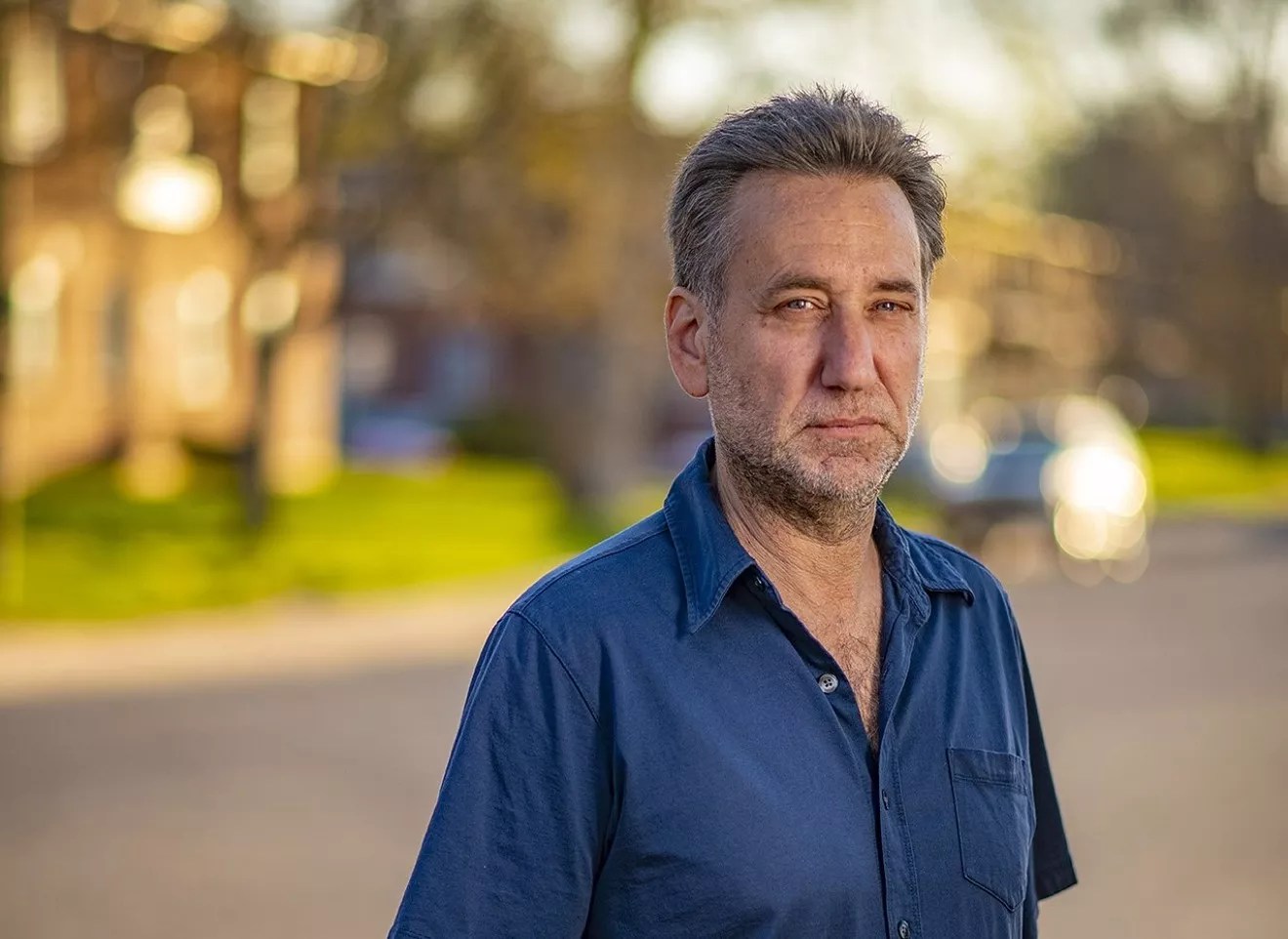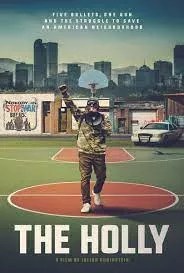
Evan Semon

Audio By Carbonatix
Julian Rubinstein has devoted much of the past decade of his life to The Holly. He does not want to lose his life to the place altogether.
After growing up in Denver, Rubinstein was living in New York when he read about a shooting at the Holly, a onetime shopping center and community hub near East 33rd Avenue and Holly Street that had been torched by members of the Bloods in 2008, then resurrected through the efforts of Terrance Roberts. A former gang member, Roberts had become an anti-gang activist when he was released from prison; he founded the Prodigal Son Initiative, got an office near the Holly, created basketball courts at the abandoned property, and fought to bring a Boys and Girls Club there. But at a peace rally and club dedication in 2013, Roberts shot Hasan Jones, a 23-year-old Blood, five times, leaving him paralyzed.
It was this incident – as well as the history of gangs in Denver and the outcome of Roberts’s trial – that became the basis for Rubinstein’s book, The Holly: Five Bullets, One Gun, and the Struggle to Save an American Neighborhood, which was released in May 2021 (Westword ran an excerpt that month), and then the documentary The Holly, a crowd favorite at the Denver Film Festival that will end a run at the Sie FilmCenter after March 2 after being extended three times. But then the film will have its New York City premiere on March 3 at Cinema Village, complete with special guests including Roberts, Rubinstein and Aqueela Sherrills, co-founder of the Community Based Public Safety Collective. It’s slated to continue that run with four showings a day through March 9.
Still, success has its price. Hours after hearing that his film had won a film-fest audience award for best documentary, Rubinstein got a call from Roberts, who said that their lives had just been threatened. The threat was deemed serious enough by law enforcement authorities that Rubinstein entered Colorado’s Address Confidentiality Program, moving from the central Denver apartment he loved to a very confidential address.
The program is a little-known protection unit of the state that was created in 2008 to protect victims of domestic violence, then expanded to shield others whose lives are threatened.
“We have a facility, and it provides an alternate address for the individual, and the individual can then use that address,” explains Doug Platt, community manager for the Department of Personnel and Administration. Since the program was started, 9,400 individuals have gone through it; approximately 4,800 are in it now, referred there by a victim advocate, the shelter system or a community professional. “Our job is simply to provide them with a resource so that they don’t have to use their home address in public documents,” Platt says. “This is their ability to insulate themselves.”

The Holly
While Rubinstein is keeping his actual address very private, he continues to push his film and book in public. The Holly was shown the last weekend of January at History Colorado as part of its Blaxploitation series, co-sponsored by the Rocky Mountain NAACP, with a panel that included Roberts and Rubinstein.
Before he commits to any public appearance, Rubinstein says that he goes over security protocols. “I have to be extra careful,” he says. “I go there early, go in separate entrances. But I’ve also decided I’m not going to let them completely defeat the work I’ve done after eight years.”
The reason he’s not backing down was evident during the panel that followed the January 31 screening. “I’m not backing down because of reactions from people,” he says. “They were really emotional, thanking me for telling this story.”
“I grew up in this neighborhood and lost family members to gang violence,” says Portia Prescott, president of the Rocky Mountain NAACP. “The findings of this film are devastating and eye-opening, and they demand accountability for elected officials who have failed to make protecting our young people their paramount concern. This is a story about the everyday abuses and injustices that are tearing up our communities. It’s a reality that many of us have lived but is rarely seen on camera.”
They’re seeing it now. “We were very excited to bring it back,” says Sie artistic director Keith Garcia. “We had two very packed screenings at the film festival. Both screenings built a huge buzz and word of mouth for this very local story.”
That buzz has continued during The Holly‘s run at the Sie, where it will start its fourth week on Friday, February 24. “We’re keeping it because it’s a consistent hit,” Garcia explains. “Right now, at this time of year, we’re in Oscar mode…and for it to rise above the buzz of Oscar chatter is great. We love to see a local hit.”
In addition to its run at the Sie, The Holly has been released nationally by Gravitas and is now available on Amazon Prime, iTunes and other platforms. And Rubinstein continues to talk about his work and the story behind it.
“When I began this journey, my goal was to understand why a revered anti-violence activist, Terrance Roberts, shot someone at his own peace rally,” he says. “The answer to that question illuminates the rarely seen challenges facing these vulnerable communities and why violence in them continues to rise.”
In The Holly and at his 2015 trial for attempted murder, Roberts said he shot Jones in self-defense; the film covers his acquittal and continued efforts to aid those communities. Today, Roberts is running for mayor of Denver.
This story has been updated to include the New York City dates.